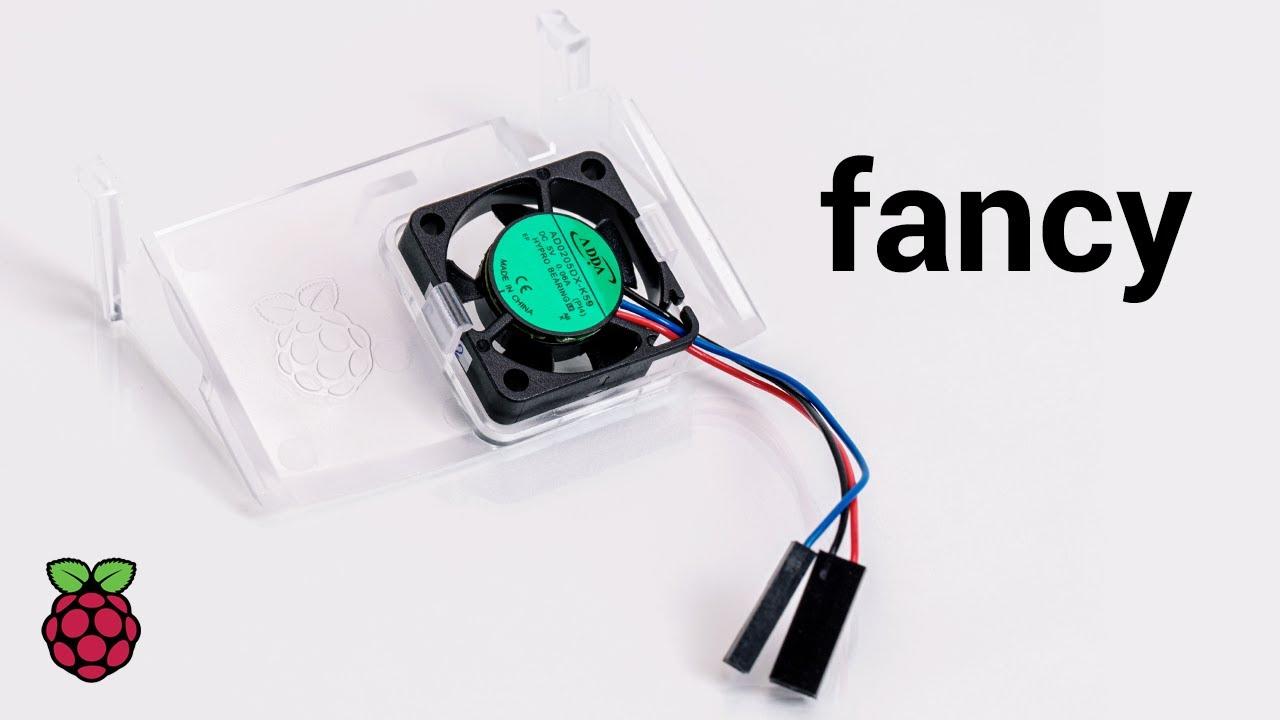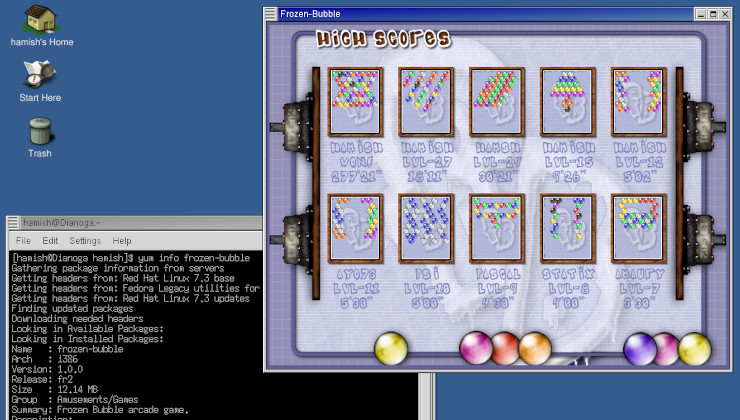Time to warm up your little board as the Raspberry Pi OS has a big new releasing up for those of you sticking with the official Debian Linux based system. Sounds like it's a pretty huge update with a lot of work that went into it, which is great as the Raspberry Pi is a wonderful device for all sorts of uses (and yes gaming too!).
For starters, this finally brings with it a major update to Chromium with version 84. They mentioned it took longer than they wanted but getting video hardware acceleration integrated takes a lot of work. Thanks to that you should see smooth video playback in browser and they've also paid special attention to the likes of Google Meet, Microsoft Teams, and Zoom due to the pandemic. This is the last release they support Flash with too.
One big background change is their move to the PulseAudio sound server. Since Linux audio can be a little…complicated, PulseAudio deals with most of the interfaces available and puts it under one roof. Most normal distributions use it by default and so with this change Bluetooth audio on the Raspberry Pi OS should now be easier too. They're also automating some of the Bluetooth stuff to make it simpler for users.
They're also now including Printing support out of the box, along with CUPS (Common Unix Printing System) and the system-config-printer UI to make it a smoother experience.
On top of all that they've improved accessibility support with the Orca screen reader, there's new system options to deal with units that have an LED like the Raspberry Pi Zero or the new Raspberry Pi 400 as well. If you missed it, they also recently announced a cheap and cheerful Raspberry Pi 4 Case Fan for $5 and the system settings have been updated in this new OS release so you can configure it.

Direct Link
Really nice to see the RPi team expand all areas of the system, as it's become a much more general-purpose unit for computing considering the amount of power it has now for the still very low cost.
Let us know in the comments what distribution you're using if you have a Raspberry Pi and what you've been doing with it. I am tempted to hop on over to Ubuntu, now it's officially supported.
They switched to PulseAudio, meanwhile Fedora planning switch from PulseAudio to PipeWire in the next release, so good timing. IMO they could wait, switch directly to PipeWire too and totally abandon PulseAudio.
For the moment gamers should use Pulseaudio as long as pipewire is not fully supported by all game related app.
Some games and wine does not support fully Pipewire, you can find a lot of issues reported by gamers on different forum.
Last edited by legluondunet on 4 Dec 2020 at 3:04 pm UTC
Still no true 64-bit support which is somewhat of a pain
You can still install Ubuntu or Arch which provide 64 bits OS for pi4.
Cool updates to the Pi OS though. I have a Pi myself.
Well I bought Raspberry pi 4 with 8 G ram when I heard about Ubuntu 20.10 desktop support on Raspberry 4. And experiences? Really confusing.My guess is the slow feeling is your memory card. The CPU and RAM should run Ubuntu pretty great I think.You can do basic things like use firefox to view the net and write text documents on ubuntu 20.10 ofc. But still it seems that proper support for Raspberry 4 is still lacking.Or I don't know how to configure it. When I tried to install updates for example it told me that there was no internet connection on Raspberry 4.Even if I had one. And Ubuntu 20.10 desktop was a bit slow but what else can you expect?Nevertheless Raspberry 4 has potential and if I were you, it would be better to wait couple of months and when the support is better and some problems are fixed then if you have Raspberry 4 try to use ubuntu desktop on it.
Still no true 64-bit support which is somewhat of a pain
You can still install Ubuntu or Arch which provide 64 bits OS for pi4.
There is also a 64 bit version of Debian for the Pi, but I haven't tried it.
Thank you pulse for now deciding to output audio on a completely different path and not actually save settings when I change them.
(I'm one of those people who has neverending problems with pulseaudio....just lucky I guess.)
Pulseaudio not easily saving settings changes is probably my biggest current peeve with the program.
Bought the 4 GB model last year when they were first announced but was disappointed in the lack of 64 bit choices so I barely used it...
Then they released a 64 bit buster - and I tried it on a "headless" RPi3 (running PiHole and OpenVPN) for a couple months... then I dd'd that image onto a Samsung T5 SSD and booted it from the Pi4 (4GB) - so my headless Pi4 4GB model is now running PiHole and OpenVPN.
I'm still running 32 bit Buster on the 2 x 8 GB models - why? Well there's no 64 bit ARM steamlink app, and also I use Citrix and there's no 64 bit ARM Citrix client - and this is purely anecdotal, but performance on 32 bit seems slightly snappier, e.g. things like Chromium...
Tried Ubuntu and even elementary (arm74) - but prefer Debian buster (and the Ubuntu images for aarch64 / arm64 are also still running older 4.x kernels).
Performance booting from USB3 is so much better than SD card, I don't boot off SD-card anymore...
Well I bought Raspberry pi 4 with 8 G ram when I heard about Ubuntu 20.10 desktop support on Raspberry 4. And experiences? Really confusing.My guess is the slow feeling is your memory card. The CPU and RAM should run Ubuntu pretty great I think.You can do basic things like use firefox to view the net and write text documents on ubuntu 20.10 ofc. But still it seems that proper support for Raspberry 4 is still lacking.Or I don't know how to configure it. When I tried to install updates for example it told me that there was no internet connection on Raspberry 4.Even if I had one. And Ubuntu 20.10 desktop was a bit slow but what else can you expect?Nevertheless Raspberry 4 has potential and if I were you, it would be better to wait couple of months and when the support is better and some problems are fixed then if you have Raspberry 4 try to use ubuntu desktop on it.
Ok I keep that in mind
Let us know in the comments what distribution you're using if you have a Raspberry Pi and what you've been doing with it.
I mainly use a PI4 with Recalbox OS for retrogaming. A PI4 is so small in size, I can easily take it on vacation to play Mario Kart and other retro games with my little niece.
I've got 3 x Pi4 (1 x 4Gb, 2 x 8Gb)That USB booting -> what are the requirements for that?
Bought the 4 GB model last year when they were first announced but was disappointed in the lack of 64 bit choices so I barely used it...
Then they released a 64 bit buster - and I tried it on a "headless" RPi3 (running PiHole and OpenVPN) for a couple months... then I dd'd that image onto a Samsung T5 SSD and booted it from the Pi4 (4GB) - so my headless Pi4 4GB model is now running PiHole and OpenVPN.
I'm still running 32 bit Buster on the 2 x 8 GB models - why? Well there's no 64 bit ARM steamlink app, and also I use Citrix and there's no 64 bit ARM Citrix client - and this is purely anecdotal, but performance on 32 bit seems slightly snappier, e.g. things like Chromium...
Tried Ubuntu and even elementary (arm74) - but prefer Debian buster (and the Ubuntu images for aarch64 / arm64 are also still running older 4.x kernels).
Performance booting from USB3 is so much better than SD card, I don't boot off SD-card anymore...
I have a Rpi4B (4GB) and would like to try some other booting device...
You probably want to check if the Pi4 has a dedicated USB 3 port because I know the Pi3 shared bandwidth with the NIC, which was terrible for transferring files over the LAN. Other boards (Pine64, Hardkernel, Libre Computer) were better at running the OS from external storage or just using external storage in general. [Here is the official doc](https://www.raspberrypi.org/documentation/hardware/raspberrypi/bootmodes/msd.md) for running your OS from an external drive.I've got 3 x Pi4 (1 x 4Gb, 2 x 8Gb)That USB booting -> what are the requirements for that?
Bought the 4 GB model last year when they were first announced but was disappointed in the lack of 64 bit choices so I barely used it...
Then they released a 64 bit buster - and I tried it on a "headless" RPi3 (running PiHole and OpenVPN) for a couple months... then I dd'd that image onto a Samsung T5 SSD and booted it from the Pi4 (4GB) - so my headless Pi4 4GB model is now running PiHole and OpenVPN.
I'm still running 32 bit Buster on the 2 x 8 GB models - why? Well there's no 64 bit ARM steamlink app, and also I use Citrix and there's no 64 bit ARM Citrix client - and this is purely anecdotal, but performance on 32 bit seems slightly snappier, e.g. things like Chromium...
Tried Ubuntu and even elementary (arm74) - but prefer Debian buster (and the Ubuntu images for aarch64 / arm64 are also still running older 4.x kernels).
Performance booting from USB3 is so much better than SD card, I don't boot off SD-card anymore...
I have a Rpi4B (4GB) and would like to try some other booting device...
FWIW, the Pi boot process is not open source where you can find other single-board computer (SBC) manufacturers that are. Is that a big deal? Maybe not to everyone. But if you can choose an open-source alternative, why not?
PipeWire
PipeWire?
Past: 5 audio engines "Yea lets unify the audio engines"
Current: 6 audio engines
...Linux audio can be a little…complicated...
See also: X11.
They switched to PulseAudio, meanwhile Fedora planning switch from PulseAudio to PipeWire in the next release, so good timing. IMO they could wait, switch directly to PipeWire too and totally abandon PulseAudio.
Changing things isn't likely to happen but maybe there is a reason for this. PipeWire looks more interesting to me. This looks like the wayland of sound.
PipeWire
PipeWire?
Past: 5 audio engines "Yea lets unify the audio engines"
Current: 6 audio engines
This ends up not really being one of those cases. Pipewire (at least as it applies to audio) is a sound server for Linux. Sound servers operate at a higher layer than ALSA (which doesn't appear to be going anywhere soon). There have been several sound servers for Linux in the past (including aRts and ESD, among others), but at this point they have all been essentially abandoned other than PulseAudio and JACK. PulseAudio is supposed to be the easy to use sound server, and JACK is supposed to be the professionally capable, but complex sound server. Pipewire seeks to be capable of replacing both of the remaining Linux sound servers. If it's good enough, it could end up being the only Linux sound server that still matters in a few years.
Last edited by CFWhitman on 7 Dec 2020 at 9:57 pm UTC












 How to set, change and reset your SteamOS / Steam Deck desktop sudo password
How to set, change and reset your SteamOS / Steam Deck desktop sudo password How to set up Decky Loader on Steam Deck / SteamOS for easy plugins
How to set up Decky Loader on Steam Deck / SteamOS for easy plugins
See more from me